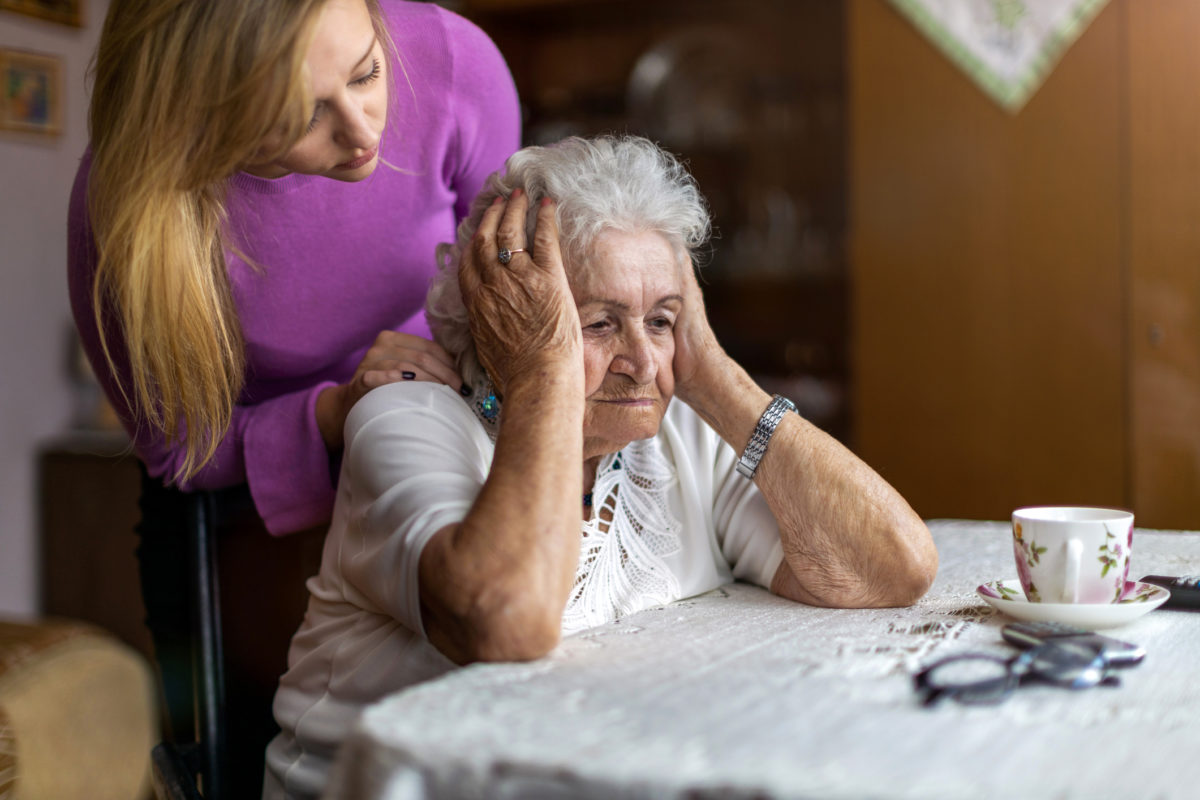By Nancy Verdin, Graduate Assistant, SDSU Social Policy Institute
Imagine going through a major shift in your life, perhaps you’ve lost your long time friend, you’ve become homebound due to limited mobility, or the people you once saw on a daily basis are just no longer part of your social circle. Now, picture being told, “that’s just life.” How isolated would you feel? For many individuals over the age of 60, these are very real life circumstances that can lead to feelings of isolation and ultimately depression. Yet depression among older adults is often attributed as a natural aging process. This dismal can lead to inadequate attention and resources needed to address their mental health needs.
Regardless of whether you are just a year or two decades from identifying as an older adult, the reality is that people are living longer. According to the projections from the California Department of Finance, the population age 60 and older is expected to reach 8.7 million by 2030, that’s nearly a quarter of the State’s total population. As we experience increased longevity, it’s important to not dismiss symptoms of depression as merely an aspect of aging but rather show empathy toward the mental health challenges faced by older adults.
Depression in this demographic is not just a matter of emotional suffering, but also has broader implications, that include increased healthcare costs, higher risks of suicides, and elevated mortality rates among this demographic. The recognition of this issue is gaining momentum and influencing the development of policies to support our aging population. Included in the 2023-2024 California’s Master Plan for Aging, a framework designed to enhance the quality of life for those residing and aging in California, incorporates initiatives that directly and indirectly address the mental health needs of older adults. Notably, Initaive 32, emphasizes the importance of risk reduction and prevention strategies, to target individuals most vulnerable to suicide, and this includes older adults 85 and above who experience the highest rates of suicides statewide. The initiative aims to mitigate the devistating impact of depression and suicidal ideation among older adults. Dismissing mental illness in older adults can have serious, if not have fatal consequences. According to the National Council on Aging from 2021 to 2022, suicide rates among individuals aged 65 and older increased by 8.1%. While not all individuals experiencing depression are suicidal, conducting depression screenings can help identify individuals at risk of suicidal thoughts or behaviors, preventing potental harm.
While building policies that recognize the vulnerability of this population, it is also equally imperative to consider how implicit biases around aging contribute to ignoring the mental health needs of older adults. A recent study, for the Office of Behavioral Health, Disability, and Aging Policy, revealed that healthcare providers often fail to adequately recognize and diagnose depression and self-harm in older adults compared to younger patients. This disparity is partly attributed to the presence of concurrent health conditions among older adults, but one can also argue that ageism is also a factor. Our society is constantly bombarded with anti-aging messages, leading many to believe that mental well-being inevitably declines as we age. However, the CDC stresses that while depression is not an inherent aspect of the aging process, older adults are indeed at a heightened risk of experiencing it. Therefore, depression should be addressed and treated with the same level of importance as other physical conditions. The mental well-being of older adults should be regarded with the same importance as that of individuals from any other age bracket. We should challenge biases that perpetuate the idea that mental health becomes less significant with age.
Older adults deserve comprehensive support to address their depression. A combination of policy reforms, shifts in societal attitudes, and enhanced health care training focused on supporting older adults with mental health challenges can pave the way for better prospects and promote aging well for all.

